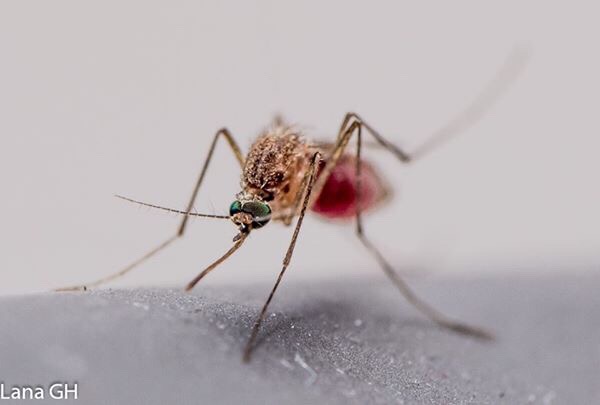An after dinner walk in nature is the only outdoor activity for many during a Covid-19 lockdown. For literature teacher, writer and pizzeria owner, Heena Bukhari, that sole breather became a source of danger as dengue fever cases surged across Singapore.
“The whole dengue rise has kind of changed my life,” Bukhari said.
Across the region, dengue cases have risen sharply, and are expected to continue rising during the hottest and most humid months of June to August. In 2020 alone, Singapore recorded 15,273 dengue infections and the highest daily record was 283 dengue cases on June 30. The country’s environment agency predicts that total dengue cases will exceed the 22,170 cases reported in 2013, the country’s last dengue outbreak, according to The Straits Times.
Dengue is a viral disease that travels via mosquito.When infected with dengue, a person could develop fever, headache, joint and muscle pain, skin rashes, feel nauseous and suffer from nose or gum bleeding. More severe cases develop dengue haemorrhagic fever or dengue shock syndrome, which is potentially deadly.
Common ways to avoid dengue infection include wearing covered clothing and using insect repellents, according to the CDC. But removing stagnant water, where mosquitoes breed, is crucial to preventing a dengue outbreak.
“When I went to my local Guardian (a local pharmacy chain), all the mosquito repellents were out of stock,” Bukhari said.
In the small island nation most of some 44,000 Covid-19 cases lie in foreign worker dormitories, but the dengue fever outbreak has attacked the general population. At 16 deaths, the mosquito-transmitted epidemic has a 0.105% death rate, almost double of the country’s 0.0576% for Covid-19.
To prevent the possibility of mosquito breeding in her own apartment, Bukhari no longer keeps her house plants, a potential source of stagnant water for mosquito breeding.
“It’s been raining a lot recently, and my pot plants just hold on to a lot of water,” she said.
There is no known cure or treatment for first-time infections. While a vaccine, Dengvaxia, is available for individuals with previous infections, there remains no known solution for those suffering from the disease.
Although research experts have outlined the differences between dengue fever and Covid-19 symptoms, Bukhari continues to worry about health authorities balancing the efforts of two concurrent epidemics.
“I know that Covid is contagious and dengue is not,” Bukhari said. “But I don’t want the government or the people in general to not care about dengue at the same level.”
To suppress the number of dengue carrying Aedes mosquitoes, Singapore’s environment agency carried out tests releasing male Aedes mosquitoes infected with a bacteria called Wolbachia. The bacteria, known to be harmless to humans, competes with viruses like dengue and Zika in Aedes mosquitoes. When these male Wolbachia-infected mosquitoes, which do not bite, pass the bacteria to their female counterparts, the latter will be infected with Wolbachia and are much less likely a carrier for dengue. This suppression method is also used in 20 US states.
Countries such as Vietnam and Brazil partnered with the World Health Organization to use an alternative method that releases both male and female Wolbachia-infected Aedes mosquitoes. However, Singaporean microbiology and immunology professor Eng Eong Ooi explained that releasing a large population of female mosquitoes is risky, if these mosquitoes end up transmitting dengue or Zika despite being Wolbachia-infected.
Despite using the Wolbachia method in communities with larger dengue clusters, reported dengue infections continue to rise to 1453 weekly cases in the week ending on July 4. Local researchers speculate that working from home puts people at a greater risk for the day active and urban loving species of the Aedes mosquito.
“While no evidence has emerged proving a direct link, lockdowns could potentially have created an environment where mosquitoes are interacting more with the population than they would otherwise,” Dr Cameron Simmons, director of the Institute of Vector-Borne Disease at Monash University, told The Straits Times.
For residents on the tropical island, their Covid-19 personal protective gear now has a necessary addition.
“It’s hard because you feel like you are covered in sunblock and mosquito spray,” Stephanie Pakowitz, music teacher at an international school located near multiple dengue clusters, said. “And on top of that, you wear a mask.”
